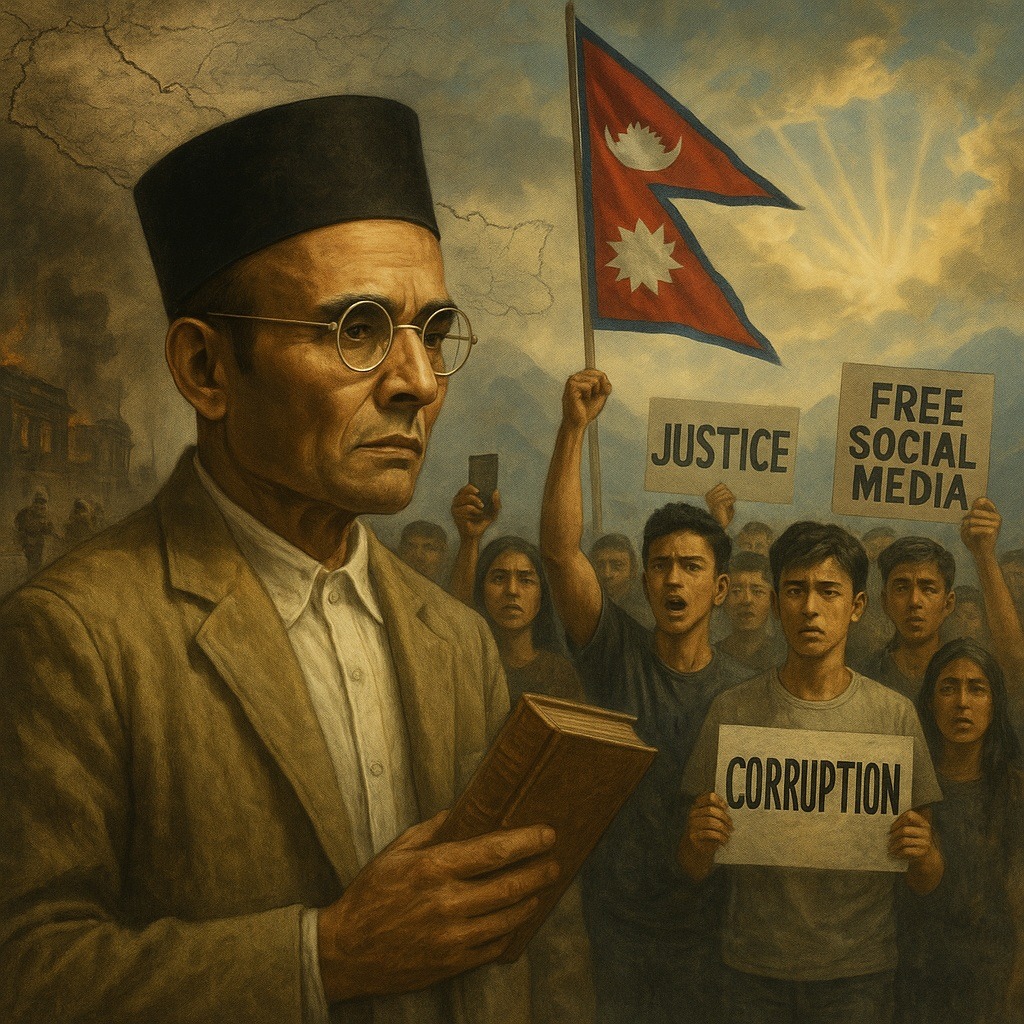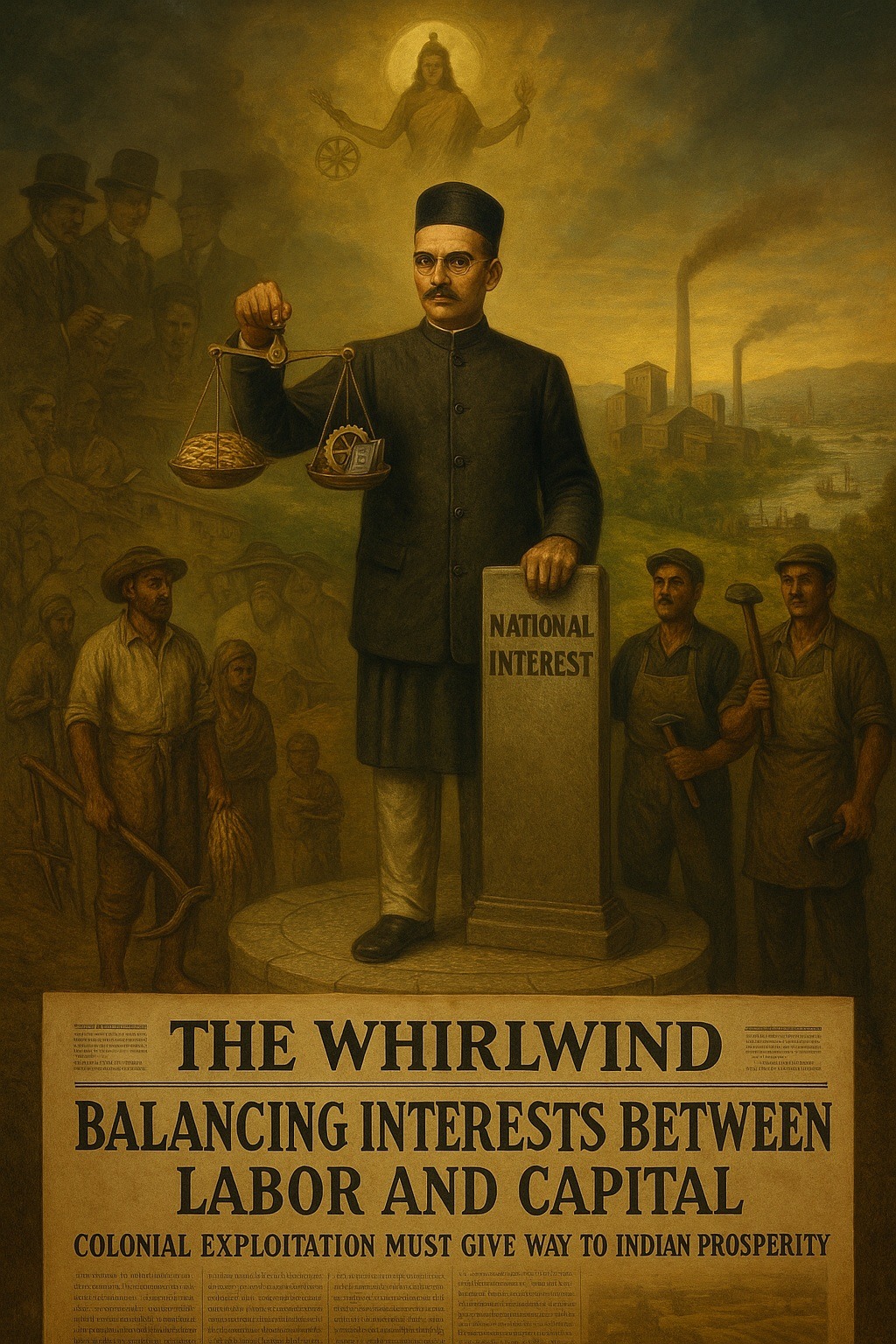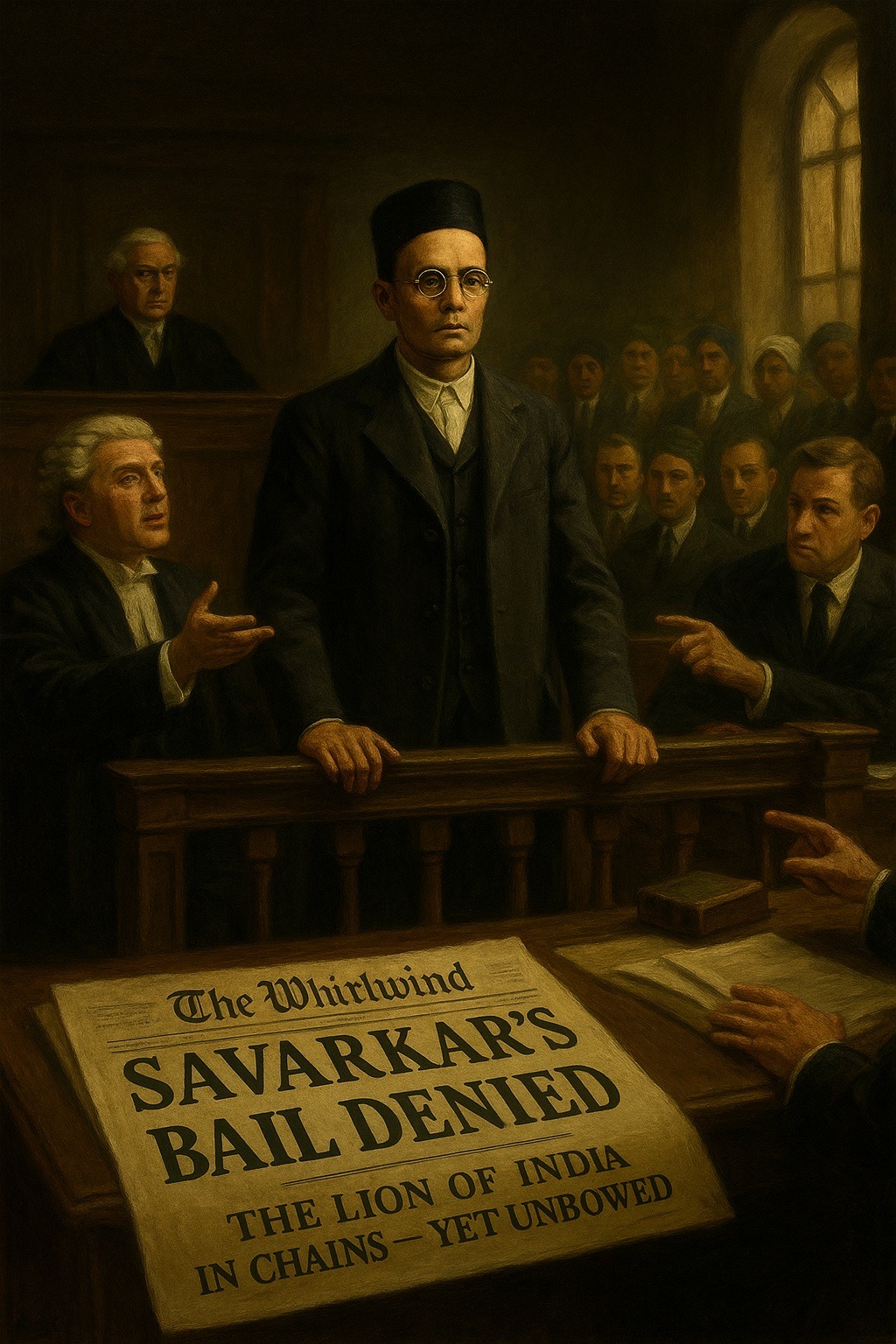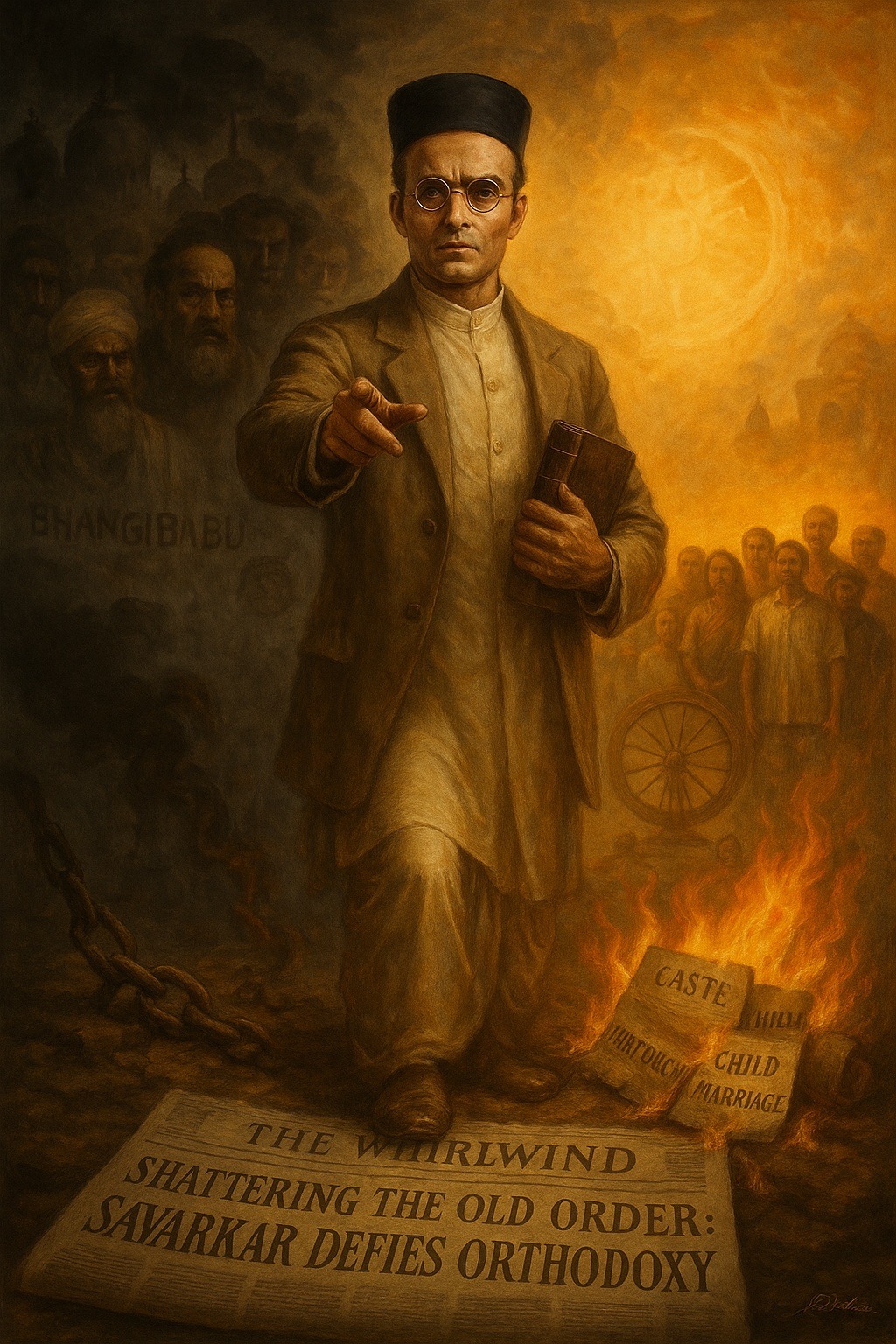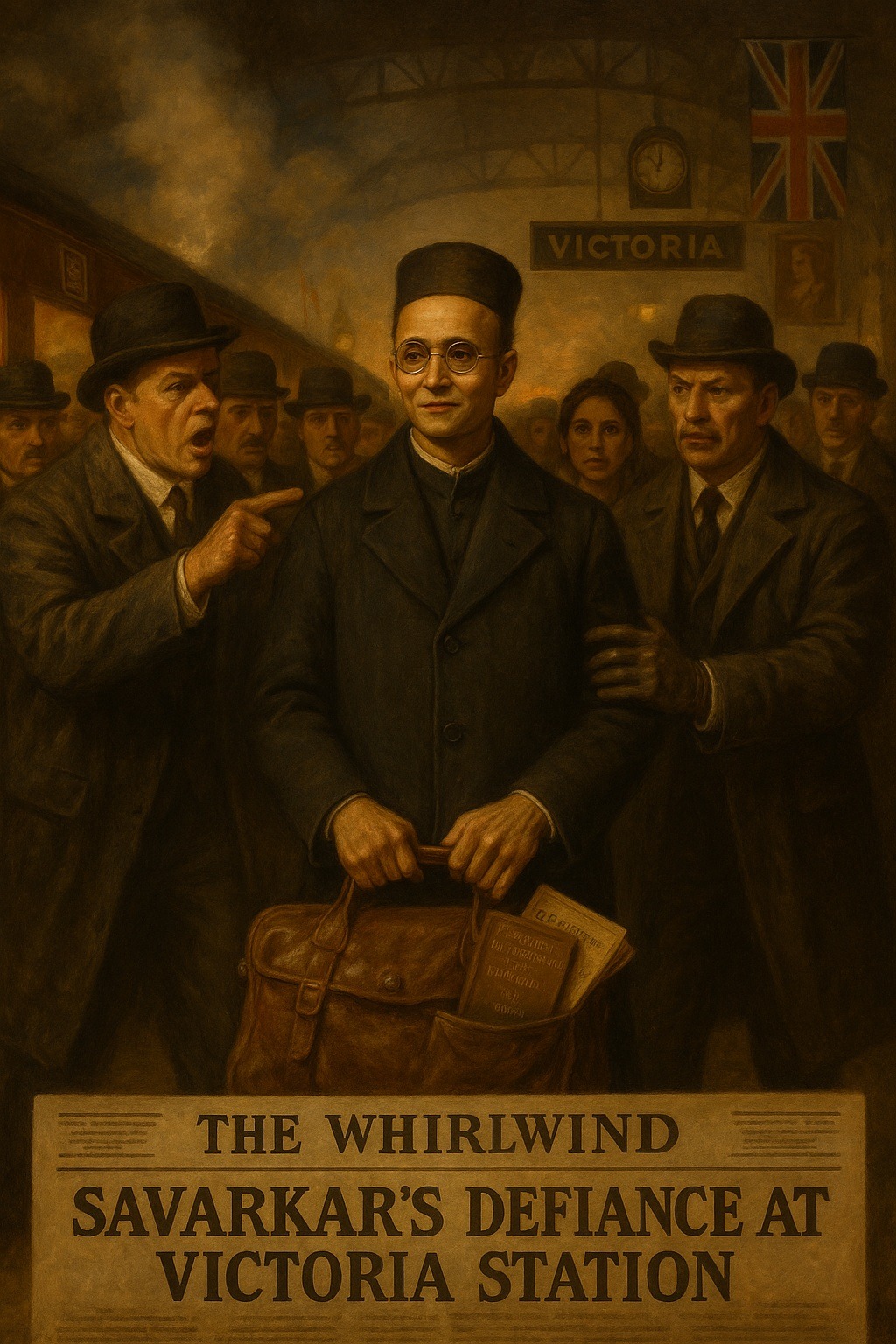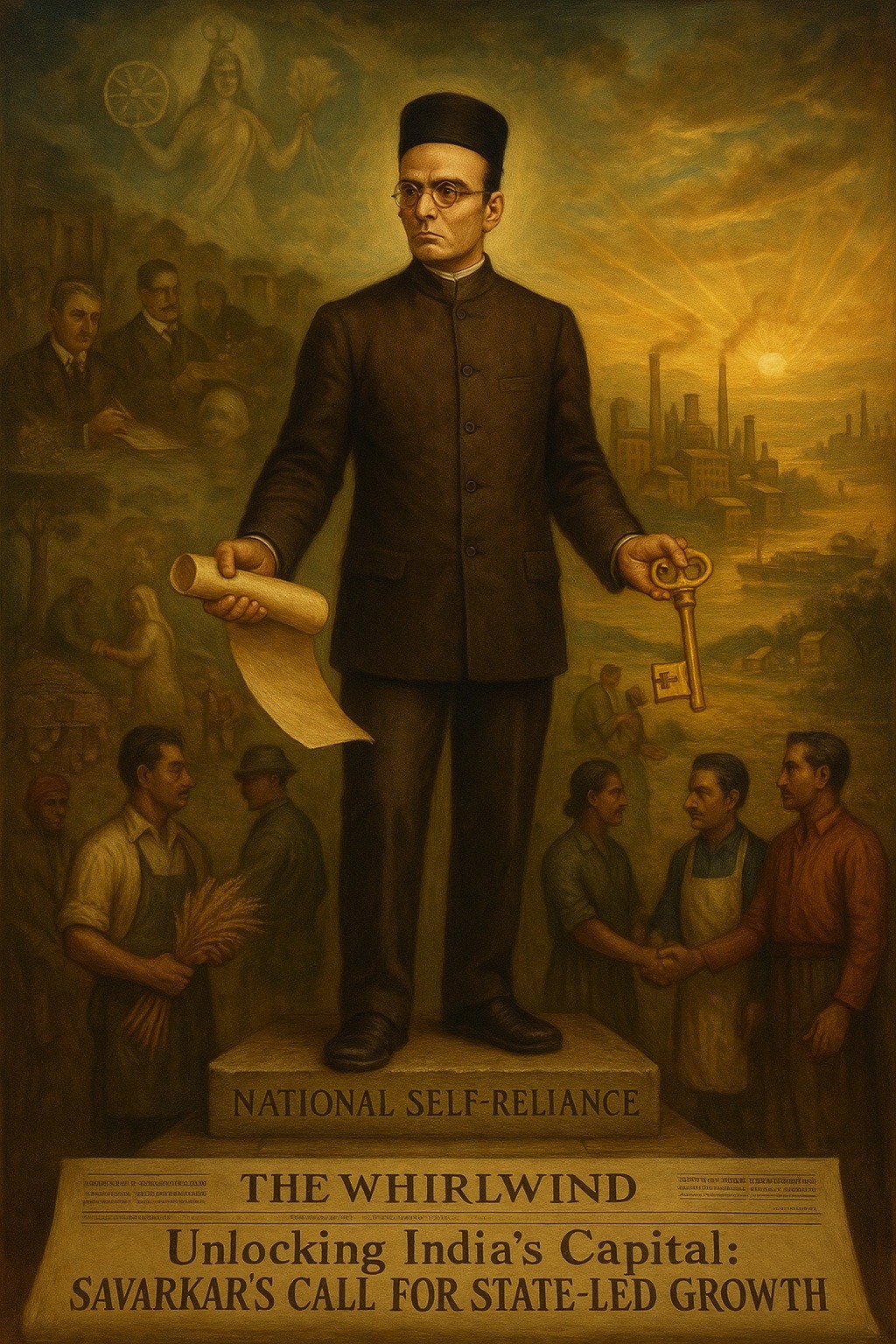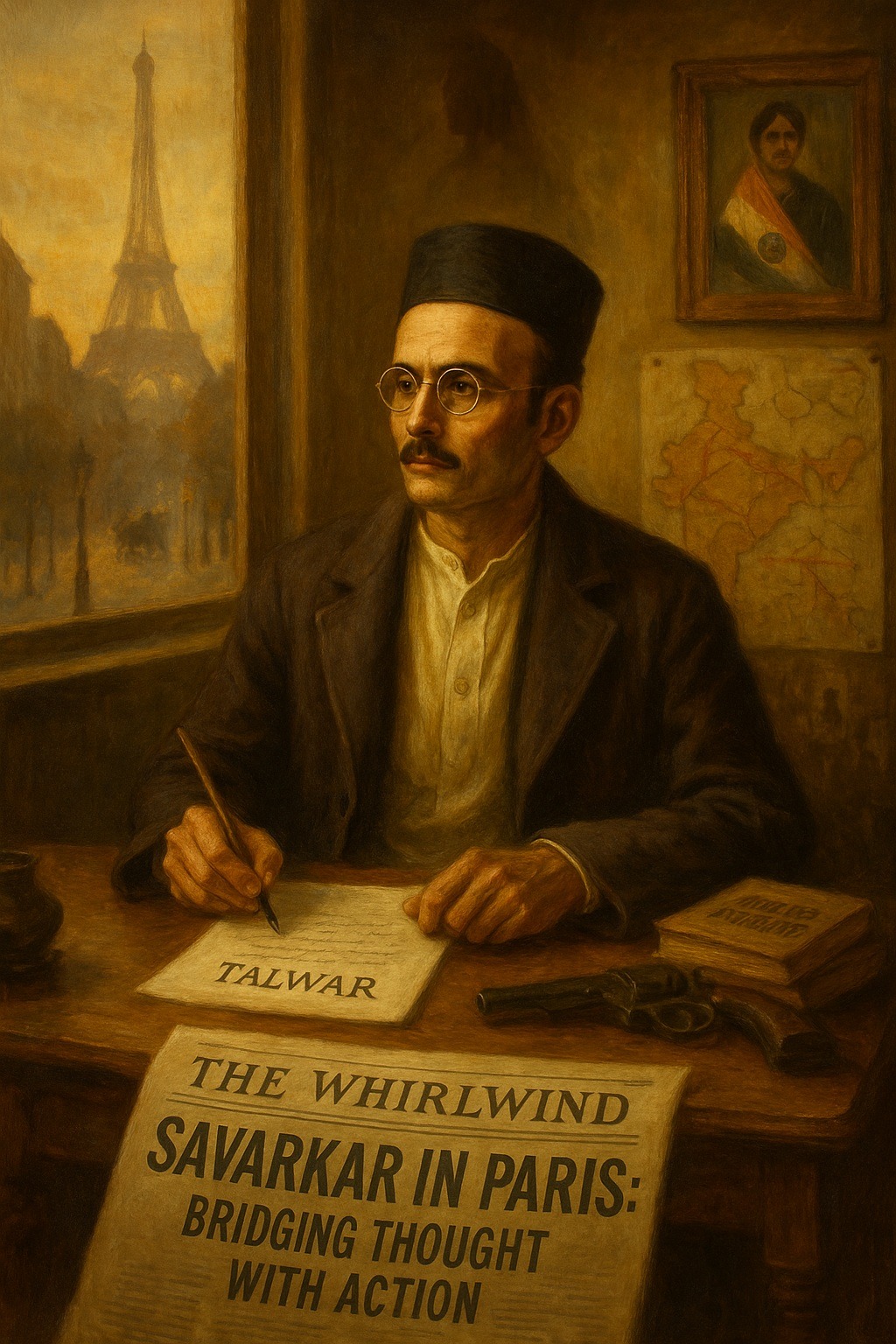Tag: Hindutva
-
Economic Dimension of Hindutva, Part 9; Savarkar’s Economic Principles (5/13) The balance between labor and capital has long been a subject of debate in economic and political thought. Vinayak Damodar (Veer) Savarkar, known for his nationalist and revolutionary ideas, also put forward an economic perspective that sought to harmonize the interests of labor and capital…
-
Religious Tradition and Political Struggle Traditional Roots of the Festival Anant Chaturdashi, observed on the 14th day of the bright fortnight of Bhadrapada (August–September), is one of India’s important Hindu festivals. Traditionally dedicated to Lord Vishnu as the infinite (Anant) sustainer of the universe, it revolves around the tying of the sacred Anant Sutra –…
-
On 1 July 1910, Vinayak Damodar Savarkar was removed from Brixton Prison under the heaviest of guards. His fate had been sealed: the British authorities had resolved to send him back to India to face trial in connection with revolutionary activities and the Nasik Conspiracy Case. For this purpose, he was placed aboard the French…
-
The dramatic London chapter of Vinayak Damodar (Veer) Savarkar’s life reached a decisive turning point in March 1910. On Sunday, 13 March 1910, Savarkar was arrested at Victoria Station while waiting for a train. For months, the British authorities had been keeping him under close surveillance, suspecting his involvement in revolutionary networks that had sprung…
-
On Sunday, 13 March 1910, Vinayak Damodar (Veer) Savarkar’s revolutionary mission in Europe met a dramatic turning point. That evening, as he arrived by train from Newhaven (via Paris) at Victoria Station in London, he was arrested by officers of the Metropolitan Police under charges of sedition, conspiracy, and waging war against the British Crown.…
-
Economic Dimension of Hindutva, Part 8; Savarkar’s Economic Principles (4/13) The economic trajectory of a nation is often shaped by its government’s role in capital accumulation and investment direction. In colonial India, where capital largely remained in private hands, Vinayak Damodar (Veer) Savarkar saw an essential role for the state in fostering national industries. He…
-
Vinayak Damodar (Veer) Savarkar’s time in Paris (1909–1910) marked a decisive chapter in his revolutionary journey. It was a period of exile, reflection, and renewed determination, shaped by both personal hardship and the escalating storm of the Indian independence struggle. A Period of Strain and Loss The latter part of 1909 was fraught with turmoil…

